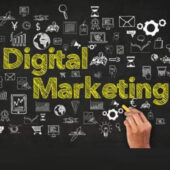International trade is one of the hot industries of the new millennium. But it’s not new. Think Marco Polo. Think the great caravans of the biblical age with their cargoes of silks and spices. Think even further back to prehistoric man trading shells and salt with distant tribes. Trade exists because one group or country has a supply of some commodity or merchandise that is in demand by another. And as the world becomes more and more technologically advanced, as we shift in subtle and not so subtle ways toward one-world modes of thought, international trade becomes more and more rewarding, both in terms of profit and personal satisfaction.
Types of Import/Export Businesses
First off, let’s take a look at the players. While you’ve got your importers and your exporters, there are many variations on the main theme:
Export management company (EMC): An EMC handles export operations for a domestic company that wants to sell its product overseas but doesn’t know how (and perhaps doesn’t want to know how). The EMC does it all — hiring dealers, invoicing customers, distributors and representatives; handling advertising, marketing and promotions; overseeing marking and packaging; arranging shipping; and sometimes arranging financing or contracting out for a developing a credit card app. In some cases, the EMC even takes title to the goods, in essence becoming its own distributor. EMCs usually specialize by product, foreign market or both, and–unless they’ve taken title–are paid by commission, salary or retainer plus commission.
Export trading company (ETC): While an EMC has merchandise to sell and is using its energies to seek out buyers, an ETC attacks the other side of the trading coin. It identifies what foreign buyers want to spend their money on and then hunts down domestic sources willing to export. An ETC sometimes takes title to the goods and sometimes works on a commission basis.
Import/export merchant: This international entrepreneur is a sort of free agent. He has no specific client base, and he doesn’t specialize in any one industry or line of products. Instead, he purchases goods directly from a domestic or foreign manufacturer and then packs, ships and resells the goods on his own. This means, of course, that unlike the EMC, he assumes all the risks (as well as all the profits).





